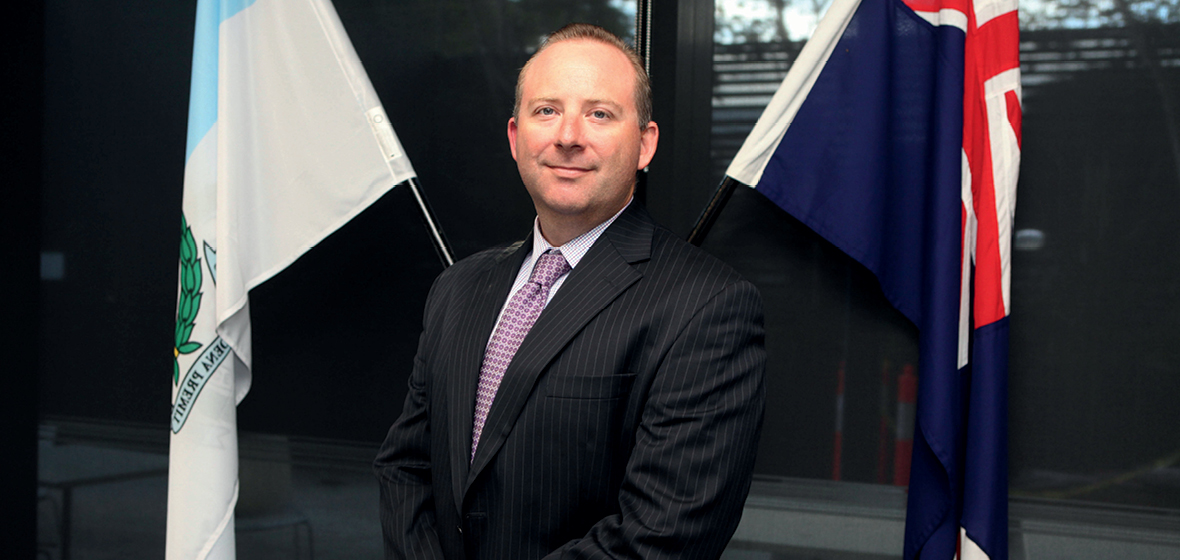When Richard McDonald enrolled to study law and psychology, he had his sights set on a counselling career.
His father had other ideas and wanted him to follow in the family business as a butcher.
“I was in my mid-20s when dad passed away,” McDonald says. “Dad really inspired me to follow what I wanted to do even though he wasn’t a fan of me joining the police. For me, I wanted to help the community and make a difference in that way.”
McDonald, 43, has been a sworn police officer since May 1999 and has had a varied career in general duties and criminal investigations in western Sydney as well as internal affairs. He has witnessed the worst that work has to offer – fatal car accidents, babies killed by their parents, murders and drug deals. He describes himself as “injured” and suffers from post-traumatic stress disorder, which he manages partly through exercise.
“I ride a 45km loop each morning and longer rides on the weekend,” McDonald says.
“When I am on the bike, I often think of the cases I have dealt with. Or I have the faces of my two children in my mind. They are seven and five and I want the world to be safer for them.”
In 2003, McDonald’s work life flourished when he joined what was then called NSW Police Service Legal Services.
The next year he was admitted to practise as a solicitor and graduated as a police prosecutor. These days, McDonald offers training, advice and legal services to police prosecutors and operational police of all ranks, and oversees the Appeals Unit.
There are about 325 police prosecutors in NSW and another 45 prosecutors who are in training plus 15 unsworn staff in the Police Prosecutions Command. Most of the work is in the Local Court, but police prosecutors also appear in the Children’s Court, the Coroner’s Court, Adult Drug Court and District Court for Commonwealth appeal matters.
The NSW Police Prosecutions Command tells JANE SOUTHWARD about his passion for combining policing and legal advice.
“My dad, Gordon, was a quadriplegic. He had a diving accident when I was seven. He didn’t have fine motor control but he could move his arms. Still, he taught himself to drive again and became totally independent. He had nurses who would get him up and put him to bed and cook for him but overall he was about as independent as you could be.




